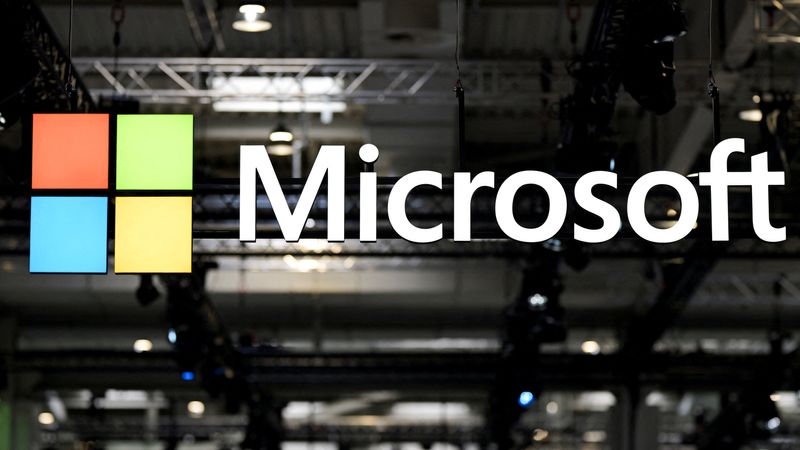Microsoft tops quarterly revenue estimates on strong Azure demand

(Reuters) -Microsoft surpassed Wall Street estimates for quarterly revenue on Wednesday as strong demand from businesses for artificial intelligence tools drove steady growth in its Azure cloud-computing unit.
Total revenue rose 18% to $76.4 billion in the April-June period, the company’s fiscal fourth quarter. Analysts on average expected $73.81 billion, according to data compiled by LSEG. Azure revenue rose 39%, compared with Visible Alpha estimates of 34.75%.
Shares of the company jumped more than 6% in extended trading.
Microsoft, the No. 2 cloud provider, said its Azure unit surpassed $75 billion in full-year revenue, disclosing Azure sales in dollars for the first time. That compares with Visible Alpha estimates of $74.62 billion, and cloud leader Amazon Web Services’ 2024 revenue of $107.56 billion.
Big Tech is under pressure to deliver stronger returns on the hundreds of billions of dollars it has poured into artificial intelligence, with analysts estimating more than $330 billion will be spent this year, largely on data centers.
Microsoft shares have gained more than 21% in 2025 on optimism that demand for Azure – crucial for running AI workloads, especially OpenAI’s technology – will remain strong.
The company has also pushed agentic AI, tech capable of handling routine tasks without human intervention, by launching a clutch of autonomous agents, including one for GitHub Copilot.
Last week, Alphabet’s Google Cloud beat revenue estimates and lifted full-year capex by $10 billion to $85 billion to support surging demand for its cloud services.
But it joined cloud rivals, including Microsoft, in warning that capacity constraints, driven by the limited supply of AI chips, were hampering its ability to capitalize on the demand.
Microsoft’s lucrative tie-up with OpenAI that gives it exclusive access to the ChatGPT maker’s technology is also under scrutiny as the startup shifts some workloads to rivals, including Google and Oracle.
Microsoft has tried to reduce its reliance on OpenAI by broadening its model lineup with partners such as xAI, Meta, and France’s Mistral, hosting their models on Azure for clients.
It also rolled out new features to Copilot in April in a bid to boost adoption, and has moved to shore up the core, non-AI side of Azure after a slowdown earlier this year.
(Reporting by Deborah Sophia in Bengaluru; Editing by Anil D’Silva)









